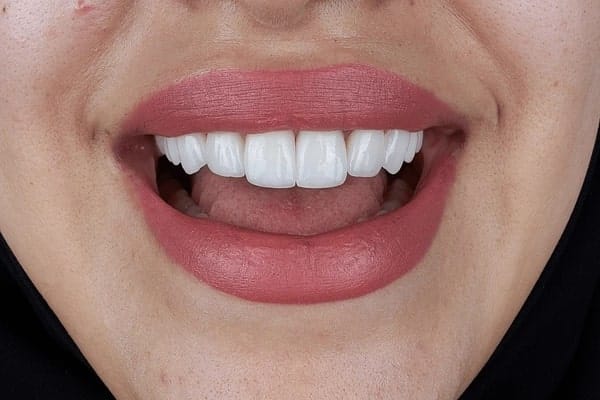Having your wisdom teeth removed is a common oral procedure, and recovery depends heavily on post-operative care—especially your diet. Knowing what to eat and what to avoid plays a key role in reducing discomfort, preventing complications like dry socket, and supporting your body’s natural healing process. From soft, smooth meals to beverages that won’t irritate the surgical site, this guide outlines the best dietary choices following wisdom tooth extraction.
Why Does Diet Matter After Wisdom Teeth Removal?
Your mouth undergoes a significant change following surgery. The extraction site becomes sensitive, and any disruption during the early stages of healing can increase the risk of complications. A tailored diet helps by:
- Supporting clot formation and tissue healing
- Minimising chewing strain
- Avoiding irritation from extreme temperatures or spicy ingredients
- Reducing the risk of infection from food particles
A soft food diet that is easy to chew and swallow is recommended to avoid disturbing the healing site.
What Are the Best Foods to Eat After Wisdom Teeth Removal?
Choosing the right foods after wisdom tooth extraction can make your recovery smoother and more comfortable. Foods should be soft, non-acidic, and nutrient-rich to help support your immune system and healing.
Here are some excellent choices:
- Mashed potatoes or mashed pumpkin
- Yoghurt (plain or Greek-style, unsweetened)
- Smooth, lukewarm soups (without chunks or spice)
- Scrambled eggs
- Oatmeal or soft porridge
- Apple sauce or pureed fruit
- Jelly or custard
- Soft avocado (mashed)
- Smoothies without seeds or citrus (consume with a spoon, not a straw)
- Cooked white rice or congee
These foods are soft, mild, easy to digest, and hydrating—perfect for supporting post-operative recovery.
What Should You Avoid Eating After Wisdom Teeth Extraction?
Just as there are foods that help healing, there are also those that can hinder it or even cause complications. Some can disturb the clot that forms in the socket, while others can become trapped in the surgical site and increase the risk of infection.
Avoid the following:
- Crunchy foods such as chips, popcorn, and nuts
- Hard fruits and vegetables like carrots or apples
- Sticky or chewy items such as toffee and gum
- Spicy dishes that may irritate sensitive tissues
- Acidic fruits like oranges or pineapple
- Hot beverages including tea and coffee
- Alcoholic drinks
- Carbonated soft drinks
- Using straws (which can dislodge the healing clot)
These items can interfere with healing by causing pressure, irritation, or even dislodging the clot necessary for recovery.
What Foods Are Safe and Unsafe in Each Category?
To make dietary planning easier, here’s a breakdown of safe versus unsafe food and beverage options after wisdom teeth removal:
| Food Category | Examples (Safe) | Examples to Avoid | Reason |
| Soft & Smooth | Mashed potatoes, yoghurt, custard | Crunchy chips, toast | Easy on surgical site, prevents irritation |
| Temperature-sensitive | Lukewarm soup, room-temp porridge | Hot coffee, tea, spicy broth | Avoids inflammation and clot disruption |
| Beverage choices | Cool water, milk, electrolyte drinks | Alcohol, soda, straws | Prevents dry socket, supports hydration |
| Acidic & Spicy Foods | Plain pasta, scrambled eggs | Citrus, chilli, pepper | Reduces risk of irritation or stinging |
| Hard & Chewy Foods | Soft white rice, smoothies (no straw) | Nuts, jerky, chewy candy | Prevents stress on healing areas |
This table supports better planning of meals during your recovery phase by helping you avoid risks and encouraging safe choices.
How Long Should You Stick to a Soft Food Diet?
Every individual heals at a different rate, but as a general guide:
- Day 1–3: Stick strictly to very soft, smooth foods.
- Day 4–7: Begin slowly introducing more texture (e.g., scrambled eggs, soft pasta).
- After a week: You may gradually return to a more regular diet, but still avoid anything too chewy or crunchy.
The healing process typically takes a few weeks, but most discomfort eases within 7–10 days. Follow any specific instructions provided by your dental team, and always contact them if you’re unsure whether a certain food is safe to consume.
How Do You Maintain Oral Hygiene While Eating Soft Foods?
Even with a modified diet, it’s essential to keep the mouth clean to reduce the risk of infection. After each meal:
- Rinse gently with warm saltwater (only if instructed)
- Avoid forceful spitting or vigorous rinsing
- Brush the rest of your teeth gently while avoiding the extraction site
- Do not floss near the surgical area for a few days
Maintaining good oral hygiene ensures that food particles don’t interfere with healing.
How Can You Stay Nourished While Following These Guidelines?
The limited variety of soft foods might make it seem like your nutrition will suffer—but there are ways to maintain a balanced intake:
- Protein: Include eggs, soft tofu, or dairy-based smoothies.
- Fibre: Pureed vegetables, oatmeal, and apple sauce are gentle and beneficial.
- Hydration: Drink plenty of water throughout the day.
For patients recovering from oral surgery, staying hydrated and consuming foods that are easy to chew, swallow, and digest is key to feeling energised while supporting healing.
Can You Meal Prep in Advance of Your Procedure?
Absolutely. Having appropriate foods on hand will prevent you from reaching for unsuitable options when you’re tired or in discomfort. Prepare in advance by:
- Cooking and freezing batches of soup or mashed vegetables
- Stocking up on yoghurt, custard, and plain oats
- Avoiding seeded or crunchy ingredients in smoothies
- Ensuring you have a plan for hydration (bottled water, cold herbal teas)
This level of preparation ensures a smooth, stress-free recovery period.
Need Support After Your Wisdom Teeth Extraction?
If you’re looking for trusted post-operative care and tailored advice after your wisdom teeth removal, the team at Palm Beach Dental is here to support you every step of the way. With a strong focus on patient comfort, safety, and education, our friendly professional dentist take the time to guide you through your healing journey. From discussing appropriate dietary choices to answering your questions with compassion and clarity, we aim to make your recovery experience as smooth as possible. Whether you’re preparing for the procedure or have already had your extraction, we’re only a call away for personalised care and peace of mind.
Important FAQ’s
Q1. When can I eat solid food after wisdom teeth removal?
Most people can start introducing soft solids around Day 4, and return to a normal diet after 7–10 days, depending on their healing progress.
Q2. Is it safe to drink through a straw after my surgery?
No. Using a straw can dislodge the clot forming in the socket, increasing the risk of dry socket. It’s best to drink directly from a glass.
Q3. Can I eat ice cream after wisdom teeth removal?
Yes, plain ice cream without nuts or hard mix-ins can be soothing, especially in the first couple of days. Just ensure it’s not too cold or sugary.
Q4. Why do I need to avoid spicy food after surgery?
Spicy ingredients can irritate the healing tissues and cause discomfort. They may also delay healing if inflammation occurs.
Q5. What signs indicate I should see my dentist during recovery?
If you notice persistent pain, swelling, pus, or fever, or if bleeding doesn’t stop, it’s important to contact your dental practitioner promptly.
Q6. Can I eat scrambled eggs on the first day?
Yes, scrambled eggs are soft, easy to chew, and nutritious—making them a safe choice starting on Day 1, once you feel ready to eat.
References
- Australian Dental Association. “Wisdom Teeth: What You Need to Know.” https://www.ada.org.au/Your-Dental-Health/Younger-Adults-18-30/Wisdom-Teeth
- Better Health Channel – Victoria State Government. “Wisdom Teeth Removal.” https://www.betterhealth.vic.gov.au/health/conditionsandtreatments/wisdom-teeth-removal
- Healthdirect Australia. “Wisdom Teeth.” https://www.healthdirect.gov.au/wisdom-teeth
Disclaimer
All dental procedures involve potential risks and benefits. The information provided in this blog is general in nature and should not be taken as medical advice. We recommend that you seek guidance from a suitably qualified health professional before making decisions about your oral health. Where appropriate, you may also wish to consider obtaining a second opinion.
Any images or videos featured are shared with the informed consent of our patients and are intended for educational purposes only. They are not a guarantee of results, as every patient is unique. Treatment outcomes — including recovery, potential complications, and effectiveness — can vary from person to person.


